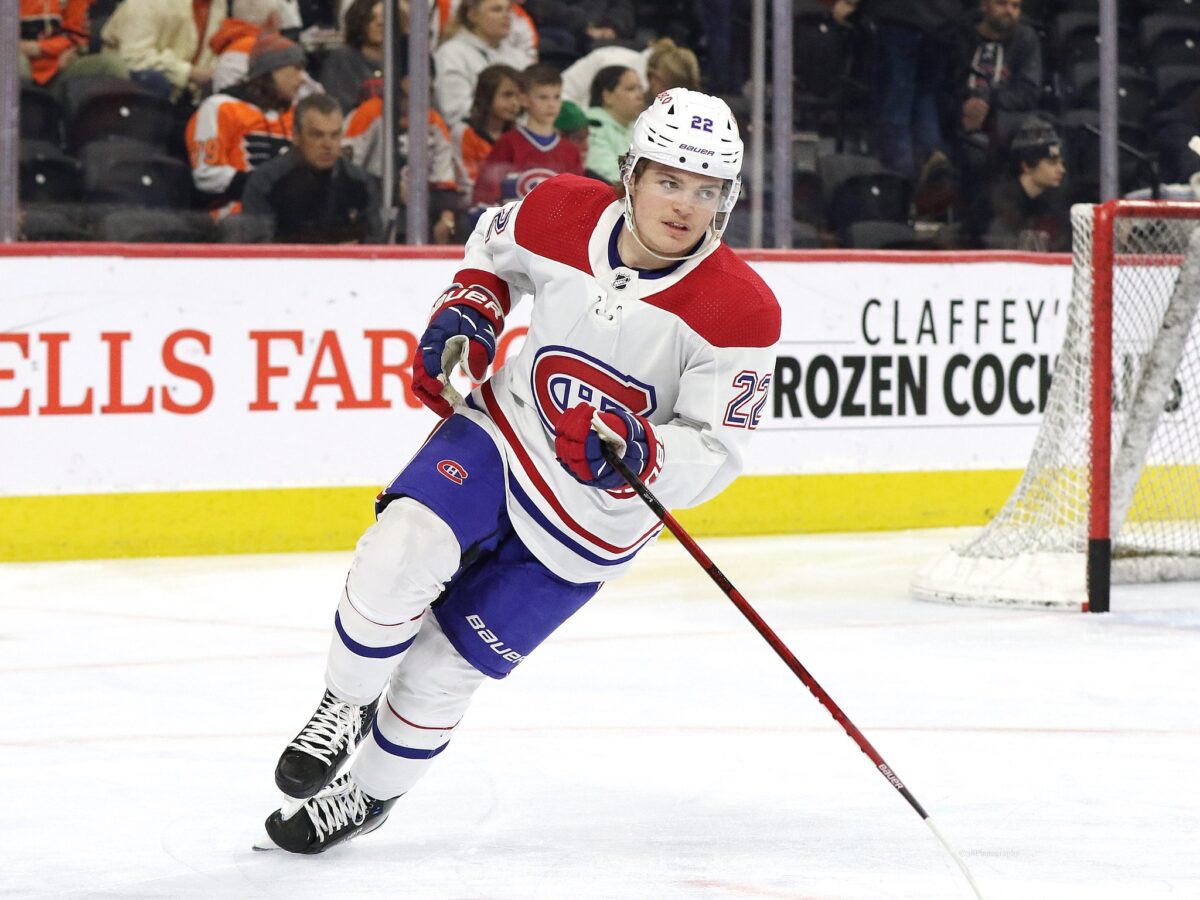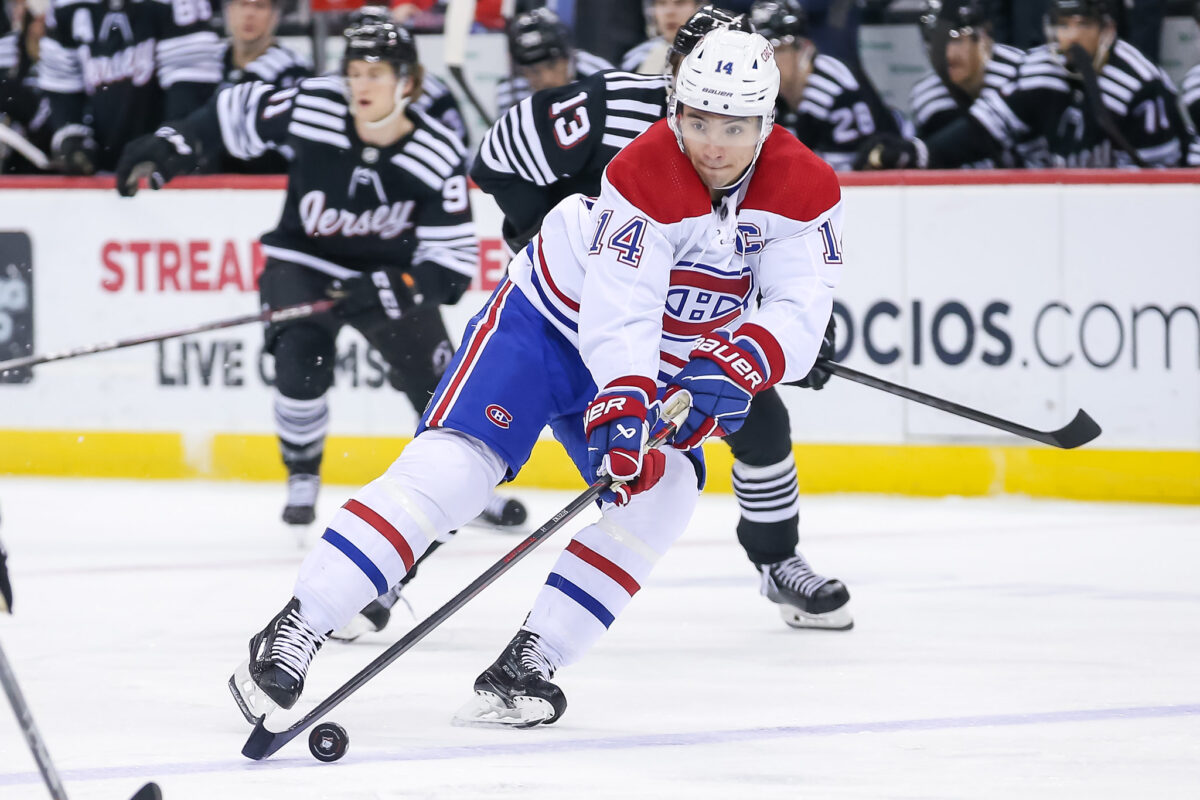The Montreal Canadiens go into this upcoming season with no expectations. General manager (GM) Kent Hughes has already stated that he doesn’t think this team is a playoff team, so with that in mind, what is considered a successful season for the Canadiens? Is it making the playoffs? Finishing in the bottom 15? Or tanking again to finish in the bottom of the league for a high draft pick? Well, that will depend on whether you are pro-tank; I, for one, am not pro-tank, so that will not be a success in my books. Here is what I think are the keys to Montreal’s success next season.
Canadiens Players’ Continued Improvement
The Canadiens will probably not make the playoffs, so in terms of success, you must look to individual players and see how they are improving. Captain Nick Suzuki, Cole Caufield, and Kirby Dach all had career years last season. Kaiden Guhle, Jordan Harris, Juraj Slafkovsky, Arber Xhakej, Justin Barron, and Rafael Harvey-Pinard had significant rookie campaigns. Sam Montembeault also improved last season to the point where he could overthrow Jake Allen as the number-one goalie. They could also have rookies join the team, and to see them succeed or at least not look out of place will be important moving forward.

Caufield was on pace for 48 goals last season and would have become the first 40-goal scorer since Vincent Damphousse in the ’90s. Suzuki was on an almost point-per-game pace when Caufield left to have shoulder surgery and could have had 80 points, another feat that hasn’t been done since the early 2000s with Alexi Kovalev. The same story with Dach, who was on pace for 70 points, but injuries derailed his chance to score that much. Injuries or not, the Montreal players were all poised to make history with their scoring. If they can maintain this momentum, even if they don’t score what their last season’s pace was, but do improve on last season’s point totals, it’s a massive step in the right direction. Slafkovsky and the rest of the rookies will be counted on to improve as well, and if they can do that, even if it’s by small margins, it should be considered a success, especially if the defence improves in their end.
The small victories and improvements make up successful teams as they fight their way back to a contending position. If fans only look at the win-loss columns, they will be in for long-term disappointment until the team turns things around. To make life easier, they can focus on the players and their strides to improve.
Canadiens’ Goal Differential
When a team is bad or rebuilding, like the Canadiens are now, you can’t expect to outscore the opposing teams too often. Believe it or not, that is a huge reason why teams have more losses than wins; I know it’s a crazy situation. This season probably won’t be much different than last regarding goals for (GF) and goals against (GA). The Habs will likely have more GAs than GFs by the end of the season; the key here is to close the gap between the two and make it a little narrower than the previous season. The Canadiens were 26th in the NHL for GF with 232 and 29th in GA with 307; that is a minus-75 differential. That averages to 2.82 GF per game and 3.74 GA per game, which equates to being outscored 4-3.
Related: Canadiens’ Hughes Building a Winning Culture in Montreal
It could be argued that the GF total could have been higher with healthier players, and that’s without a doubt a given, but it doesn’t mean the GA would go down, which is the real issue here. If the young defenders can improve their defensive game and the team can get more scoring overall, then maybe these scores can swing more the other way or at least be close enough to break even in at least rounded averages. For example, even if the Canadiens could raise the GF to 3.3 and the GA down to 3.5, that would be a considerable improvement and success for the team going forward. To get these averages, they would have to score 270 GF, an increase of 38 goals, and decrease their GA by 17 to 290. If you think 38 goals would be a lot, remember Caufield himself was on pace for 48, which was 22 more than the 26 he finished the season with.
Canadiens Need to Stay Healthy
The health of the Canadiens is probably the most essential part of the team’s success. Once again, they broke records in man-games lost last season and have been one of the most injured teams in the NHL for the past three seasons. Suzuki was the only player to play all 82 games, and the big reason the defence was so young was because of injuries to Mike Matheson, Joel Edmundson and David Savard. Jonathan Kovacevic played the most games for any defenseman with 77, also second behind Suzuki. Injuries were a vital reason Montreal finished in the bottom five of the league last season. It can be safely argued that they wouldn’t have finished as low if they had remained relatively healthy.

The positive to be taken out of the injuries is how well some players played with limited games. Sean Monahan had 17 points in 25 games, Dach 38 points in 58 games, Caufield 26 goals and 36 points in 46 games and Matheson 34 points in 48 games for a defenseman. It also allowed players like Harvey-Pinard, Harris and Barron to prove they belong on the team. If Montreal can stay healthy next season, they should be able to increase their offensive output and hopefully decrease the GA. Like what was said earlier, this will go a long way in the teamm winning more games and improving over last year’s totals.
Some fans will not want to see the team improve but want to have the players improve individually. These fans want another high draft pick because, truthfully, this team does lack a high-end superstar. The problem with this is if the players improve, the team will improve, and this team may not be a playoff team, but they certainly are not a bottom-five team either. It will be interesting to see how well this team will be next season and if injuries play a role; if they don’t, the Canadiens could surprise many people and finish higher than most expect.
